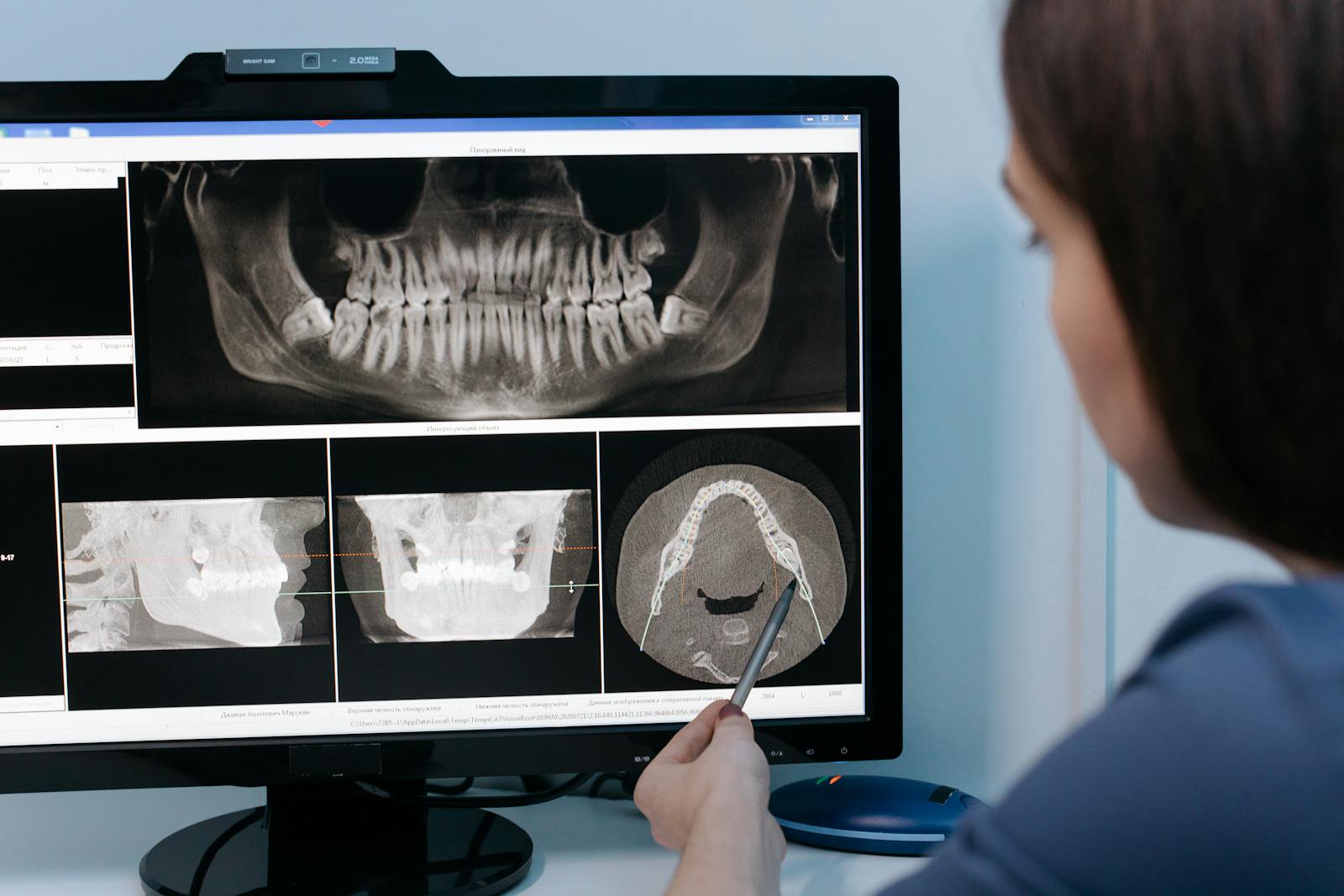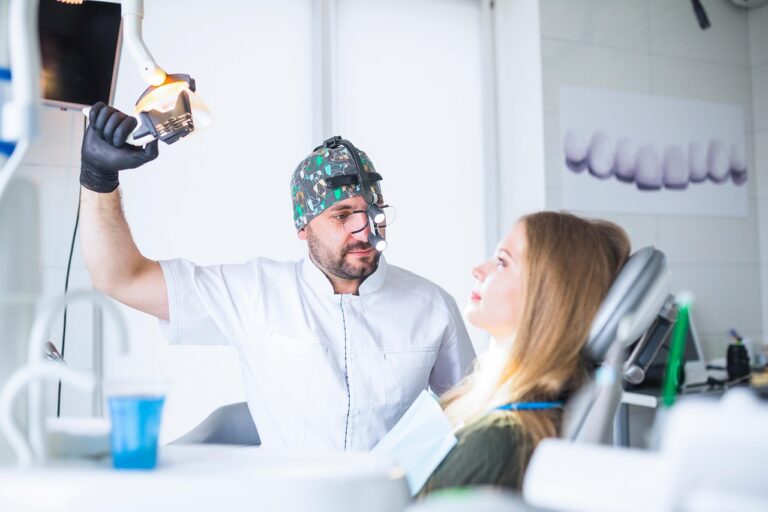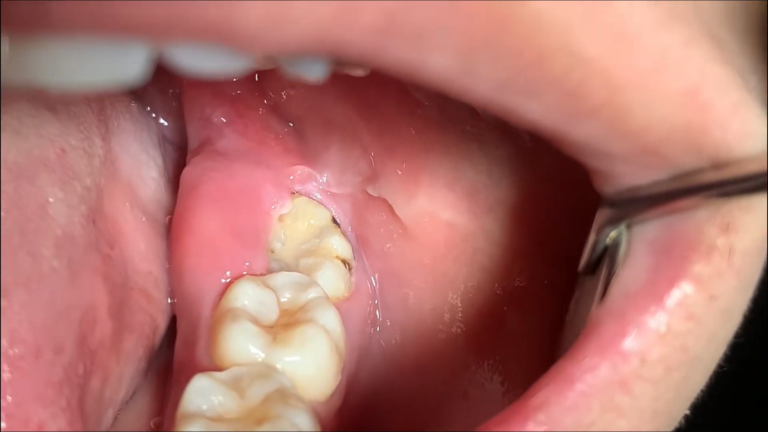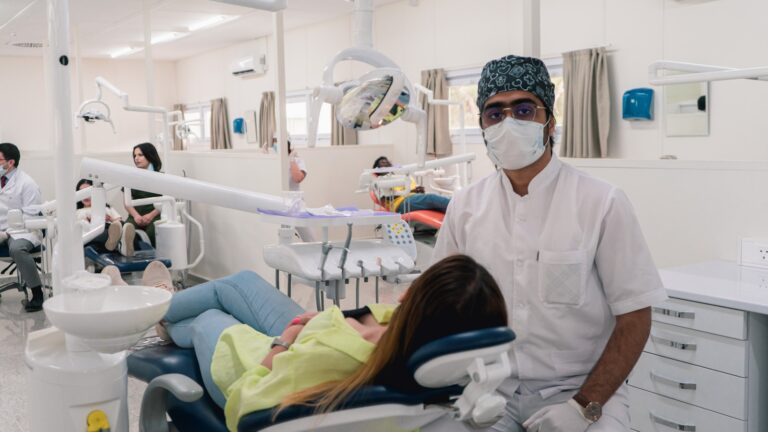Can Orthodontics Prevent Wisdom Tooth Impaction?
If you or your child has had braces, you probably remember how much time, effort, and discipline it took to get those teeth perfectly aligned. So naturally, when wisdom teeth start coming in, many patients ask: “Will they mess up my smile?” Or even more specifically: “Can braces or orthodontic treatment stop wisdom teeth from becoming impacted?”
It’s a great question—and like most things in dentistry, the answer is a bit more nuanced than a simple yes or no.
Let’s break it down.
What Does “Impacted” Mean?
When dentists describe a wisdom tooth as “impacted,” they’re talking about a situation where the tooth fails to erupt properly into the mouth because there simply isn’t enough room for it to grow. This lack of space prevents the tooth from emerging in a normal, upright position.
Instead of breaking through the gums in line with your other molars, an impacted wisdom tooth might:
- Grow at an angle, pushing forward into the molar in front of it
- Tilt backward toward the rear of the jaw
- Lie sideways, completely horizontal beneath the gum line
- Remain trapped entirely within the jawbone or soft tissue
This abnormal positioning can lead to a variety of complications. Impacted wisdom teeth often create chronic pressure against nearby teeth, leading to pain, tightness, and crowding. They can also irritate or infect the surrounding gum tissue, causing redness, swelling, and even pus if bacteria becomes trapped under the flap of gum that partially covers the tooth.
Worse yet, if left untreated, impacted wisdom teeth can form cysts—fluid-filled sacs that can erode the jawbone or damage the roots of adjacent teeth. In rare cases, these cysts can even lead to benign tumors that require more extensive surgical treatment.
Here’s the key point: impaction isn’t really about the tooth misbehaving—it’s about your anatomy. Most cases of impaction occur simply because the jaw is too small to accommodate a third set of molars. And while orthodontic treatment can align your teeth beautifully, it does not significantly increase the size of your jaw or create more room at the very back of your mouth.
Can Orthodontics Make Room for Wisdom Teeth?
It’s a common assumption: if braces can straighten your teeth and fix overcrowding, can’t they also make room for your wisdom teeth? The answer, unfortunately, is not quite.
Orthodontic treatment—whether it involves traditional braces, clear aligners, or other appliances—is primarily focused on correcting tooth alignment and bite function. That means repositioning crooked teeth, closing gaps, or guiding teeth into more optimal positions for chewing and aesthetics. While braces do create space within the dental arch to properly align your visible teeth, they generally do not expand the jawbone itself, especially not the very back of the jaw where your wisdom teeth will eventually try to erupt.
In other words, even if your orthodontist has done a beautiful job aligning your teeth, it doesn’t necessarily mean there’s enough physical room in your jaw to accommodate four extra molars.
Why is that?
Because wisdom teeth—also called third molars—are the last teeth to erupt, and by the time they start to come in (usually between ages 17–25), the rest of your mouth is already “spoken for.” The back of the jaw is a crowded neighborhood, and unless you were genetically gifted with a wide jaw or fewer than four wisdom teeth, there often isn’t enough space left for them to emerge properly.
This is why many people with perfectly aligned, post-braces smiles still end up with impacted wisdom teeth. The orthodontic treatment didn’t cause the impaction—it just didn’t prevent it, because it wasn’t designed to do so.
So, while orthodontics can certainly improve overall dental structure and spacing, it’s important to understand this limitation:
Braces help guide your existing teeth into ideal positions, but they don’t prevent wisdom tooth impaction—especially if your jaw doesn’t have room for those third molars in the first place.
Do Wisdom Teeth Affect Orthodontic Results?
This is one of the most frequent concerns I hear from both patients and parents:
“Will my wisdom teeth ruin all the work we did with braces?”
And honestly, I get it. After investing years wearing brackets, wires, or aligners—not to mention the appointments, the costs, and the discipline—it’s completely natural to worry that your third molars might throw everything off balance.
Let’s unpack this with a bit more nuance.
The idea that erupting wisdom teeth can cause crowding in the rest of the mouth—especially the lower front teeth—has been a topic of dental debate for decades. On one hand, some scientific studies have suggested that wisdom teeth don’t exert enough force to push your other teeth out of alignment. These researchers argue that late shifting or relapse can happen regardless of whether you have wisdom teeth, especially if a patient stops wearing their retainers.
On the other hand, some clinical experience suggests that in certain patients—especially those with very tight jaws or preexisting crowding—erupting or impacted wisdom teeth may contribute to pressure that nudges the front teeth out of place over time.
But here’s what we do know for sure:
Wisdom teeth can become problematic, even if they don’t directly shift your teeth.
For example:
- They can become partially impacted, trapping food and bacteria, which leads to infections and gum inflammation
- They can grow at odd angles and interfere with your bite, causing jaw discomfort
- They can develop cysts or damage nearby teeth, especially if ignored over time
This is why most orthodontists don’t just stop treatment after the braces come off. They continue to monitor your entire mouth—including your wisdom teeth—during your follow-ups. Panoramic X-rays are typically taken during or shortly after orthodontic treatment to evaluate the size, shape, and position of your third molars. If it looks like your wisdom teeth could pose a risk—whether to your bite, your hygiene, or your beautifully straight smile—your orthodontist or general dentist may recommend early removal, often before symptoms appear.
So, while wisdom teeth may not guarantee post-braces crowding, they’re still unpredictable guests—and it’s wise to keep a close eye on them.
So, Can Orthodontics Prevent Impaction?
It’s a reasonable hope—after all, orthodontics can work wonders in transforming crowded, misaligned teeth into beautifully straight smiles. But when it comes to preventing wisdom tooth impaction, the truth is a bit more sobering.
To put it plainly: Orthodontic treatment alone is not a reliable method to prevent wisdom tooth impaction.
Why? Because impaction is primarily about space and jaw anatomy, not the alignment of your front teeth. Even if your orthodontist does an excellent job straightening your smile, the space at the very back of your jaw—where your wisdom teeth try to erupt—is usually untouched by braces. If your jaw is naturally too small to accommodate them, no amount of brackets, wires, or aligners will change that fact.
That said, orthodontic care still plays a valuable role in the bigger picture of your dental health, especially when it comes to the early management and monitoring of wisdom teeth.
Here’s how:
- It improves overall oral structure:
While orthodontic treatment doesn’t make your jaw bigger, it does create a more harmonious and functional bite. In some cases, this may help reduce the likelihood of misaligned wisdom teeth interfering with the rest of your mouth. Occasionally, when spacing is improved, wisdom teeth might erupt more cleanly—but this is more of a side benefit than a guarantee. - It encourages regular dental monitoring:
Orthodontic treatment brings patients into more frequent and detailed contact with dental professionals. During this process, orthodontists will often take panoramic X-rays to assess how your wisdom teeth are forming and whether they might become problematic. This proactive approach allows for early detection of impaction before symptoms appear. - It enables timely intervention:
Thanks to regular monitoring, your dentist or orthodontist can spot early warning signs—like angulation, lack of space, or developmental abnormalities. If it looks like your wisdom teeth won’t erupt properly, they may recommend preventive extraction, ideally before the roots fully develop. This kind of early decision-making can reduce the risk of painful complications later.
While braces won’t directly stop impaction, they put you in the best position to deal with it intelligently—by giving your dental team the information and access they need to guide your care before problems start.
Final Thoughts
If you’ve had orthodontic treatment (or are planning to), don’t assume your wisdom teeth will behave just because everything else looks great on the surface. The best thing you can do is continue with regular dental check-ups, keep your follow-up orthodontic appointments, and have panoramic X-rays taken when recommended.
Wisdom teeth can be unpredictable. But with proper monitoring—and if necessary, timely removal—you can protect your beautiful post-braces smile for years to come.
So no, braces won’t stop your wisdom teeth from becoming impacted. But they do give you a head start in managing what happens next.
Stay proactive, stay informed—and always ask your dentist what’s going on below the surface.






